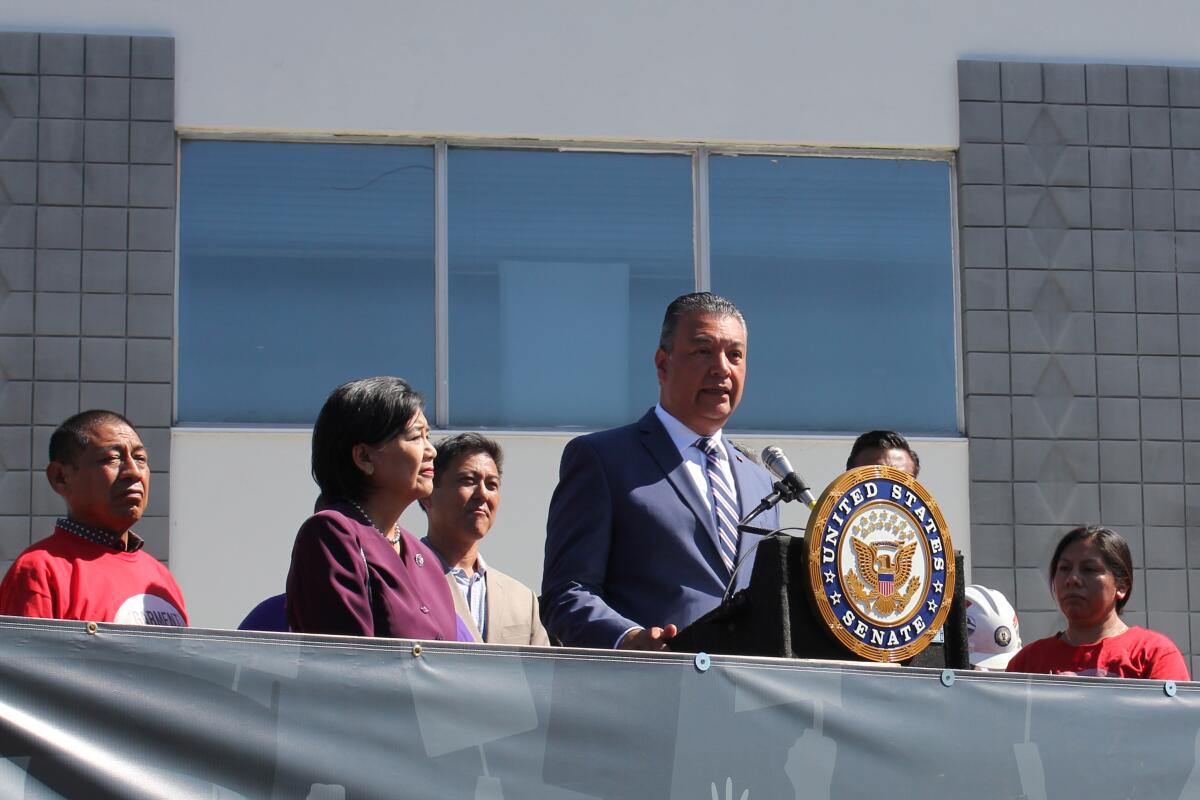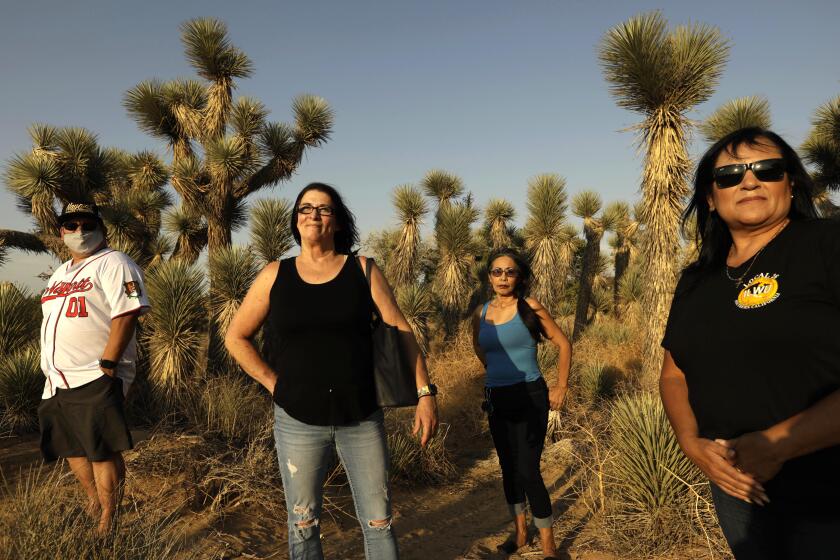Heat waves can be deadly. California workers, lawmakers push for federal labor protections

- Share via
Francisco Tzul, a garment worker in Los Angeles, said he’s seen people die on the job due to heat-related stress and illness.
“Sometimes I get really sick, especially over the summer because the heat is extremely bad,” said Tzul, 58, who has been a garment worker since the 1990s. “I worked many occasions in small rooms where they keep the machines without ventilation at all. It’s horrible.”
Ahead of Southern California’s triple-digit heat wave this week, union workers were joined by Sen. Alex Padilla and Rep. Judy Chu in a Tuesday news conference, advocating for the passage of federal workplace heat stress protections.
The Asunción Valdivia Heat Illness and Fatality Prevention Act, co-sponsored by Padilla in April 2021, would direct the Occupational Safety and Health Administration to establish a standard to protect workers from hazardous heat, including access to water, paid breaks in cool spaces, emergency response and limitations on the amount of time exposed to heat.
Forecasters say the Antelope Valley could see temperatures as high as 113 degrees during the ongoing heat wave.
The bill was advanced by the U.S. Education and Labor Committee in July 2022 and is expected to reach Congress for a vote in the coming weeks. On Tuesday, Padilla spoke about the bill’s namesake, Asunción Valdivia, who died of heat stroke in 2004 at the age of 53 after picking grapes in 105-degree temperatures for ten hours straight.
“His story is tragically too familiar,” Padilla said. “No farmworker, no worker, no human being should be expected to work under these conditions and yet Asunción did and died in 2004. That was almost 20 years ago and since that time, temperatures continue to rise.”
Chu spoke about 24-year-old Esteban Chavez, who died while delivering packages for UPS in Pasadena in June. Chu said that drivers like Chavez are under “immense pressure to reach daily delivery quotas” and that without air conditioning, their trucks can be 10 degrees hotter than outside temperatures.
“Those who work so hard to keep food on our tables and keep our economy running deserve to have their health and their lives protected, which is why we must pass this act,” she said.
Extreme heat is endangering California warehouse workers, who often labor without air conditioning.
About 815 U.S. workers died from heat stress between 1992 and 2017 and more than 70,000 were injured, according to the Bureau of Labor Statistics.
Heat stress has been exacerbated by climate change. Last year marked the fourth-warmest year in 127 years, according to the National Oceanic and Atmospheric Administration. The average temperature was 54.5 degrees, about 2.5 degrees higher than the 20th century average.
Some states, including California, have established standards for heat exposure. California’s Heat Illness Prevention Standard requires employers to provide enough fresh water, access to shade, training about heat illness prevention and planning.
Marissa Nuncio, director of the Garment Workers Center, stressed the importance of statewide heat standards being expanded across the U.S. and that indoor workers be just as protected as outdoor workers.
“It’s called a sweatshop for a reason,” she said. “Workers talk about working behind locked doors without air conditioning and their labor is literally being sweated out of them under really fast-paced conditions and industrial machinery that causes a lot of ambient heat.”
Tzul said that some factories have no air conditioning and temperatures can reach more than 120 degrees during the summertime.
“We appreciate the local authorities like Sen. Padilla and Rep. Chu,” he said. “They realized something needs to be done and we’re here to speak up on behalf of those who aren’t able to.”
More to Read
Sign up for Essential California
The most important California stories and recommendations in your inbox every morning.
You may occasionally receive promotional content from the Los Angeles Times.
















